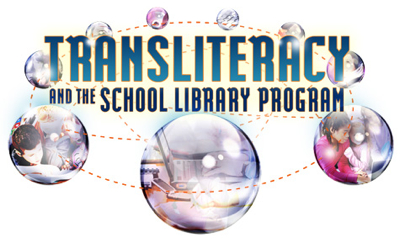Academic Librarians 2012
The Future is Now! Creatively Reaching and Teaching in Academic Libraries
June 12 & 13, 2012, Syracuse University, Syracuse, NY
Value. Learning. Technology. Librarianship. As with all libraries and organizations, we must constantly demonstrate our value to our stakeholders amidst the changes brought on us at an increasing rate by the technology that we and our students use. Technology shapes our interactions with others, our learning techniques and styles, and our pedagogy; it can affect the way our value is perceived. This year’s conference explores value, community, collaboration, social awareness, and applications that enhance learning. How do we demonstrate the value of the academic library in this changing information environment? How do we reach and teach our students? How is information literacy being transformed? Is it possible to game to learn or learn to game? What is the new librarianship? We invite you to explore these issues with us!
Academic Librarians 2012 is brought to you by the NY 3Rs Association and the Academic and Special Libraries Section of the New York Library Association; in cooperation with the New York State Higher Education Initiative.
KEYNOTE SPEAKERS
Roy Tennant, a Senior Program Officer for OCLC Research. The Once and Future Academic Library. The academic library has for many years been considered the very heart of the university. Today that centrality is challenged by a new set of digital players and the rapidly changing needs of the organizations we serve. What are the challenges and opportunities we face today in remaining the heart of the university? How are some libraries reconfiguring their spaces, their services, and their staff to better serve the needs of the 21st century university?
Dr. David Lankes, Associate Professor, Syracuse University. The Bad, The Good, and The Great. Bad libraries build collections; good libraries build services (after all a collection is only one type of service); great libraries build communities. In a time of great change and challenges to the very model of higher education, libraries must move beyond a focus on collections to a focus on communities. As new models of instruction (flipped classrooms, inquiry based instruction, etc.) and research emerge (interdisciplinary, large scale, collaborative, data driven), libraries find themselves well positioned – but only if they see their strongest assets as the librarians, not the materials librarians have organized. This talk will look to a new librarianship that moves past artifacts to knowledge and sets a new path.
PANEL DISCUSSIONS
Demonstrating Value and Building Relationships.
• Lisa Hinchliffe, Associate Professor at the University of Illinois at Urbana-Champaign (UIUC). On Providing and Documenting Value: Dual Imperatives for Academic Libraries. Academic librarians face a multitude of challenges in responding to user needs as well as economic, technological, and accountability demands. The dual imperatives of providing value to our users and then documenting that value can serve as touchstones we embrace today’s possibilities and create tomorrow’s realities.
• Dr. Nancy Fried Foster, Anthropologist, Director of Anthropological Research, River Campus Libraries, University of Rochester. Finding Information: A Relationship Thing. In studies of how undergraduates use the libraries at the University of Rochester (UR), we have come to see the central importance of relationships among students, their instructors, their friends and relatives, and librarians and other university staff. This talk will give a brief overview of the use of ethnographic methods at the UR libraries. It will then review results of recent projects on how students “learn the ropes” and what faculty expect of them, emphasizing changing relationships and the development of academic interests and competence.
21st Century Literacies.
• Camille Andrews, Learning Technologies and Assessment Librarian, Cornell University. Integrating 21st Century Literacies into the Curriculum. Information literacy, digital literacy, media literacy, visual literacy-what does it all mean and how do they relate? Camille will examine the intersection of current theories of information and other literacies and emerging work in digital media and learning and present some current and possible examples of integration of these 21st century literacies into the curriculum and beyond.
• Trudi Jacobson, Distinguished Librarian and Head of the Information Literacy Department at the University Libraries, University at Albany. How Metaliteracy Changed My Life, My Teaching, and My Students’ Experiences. It has never been easy to attempt to teach students core information literacy competencies, but in the past there seemed to be a fairly stable information environment to grapple with. Today’s information world is amorphous and changing at the speed of light. How do we even keep up, let alone teach students? Might we rely on our students themselves to help bridge the gap? Hear how a teaching method, changing technology, and a revised conception of what constitutes information literacy came together to address the evolving needs of today’s students.
• Kaila Bussert, Visual Resources Outreach Librarian, Olin & Uris Libraries, Cornell University; co-author of ACRL’s Visual Literacy Standards. Visual Literacy in Higher Education: New Standards for 21st Century Learners. Visual literacy is essential for 21st century learners. While today’s college students live in a visually-rich, screen-based world, they are not necessarily prepared to critically engage and communicate with images and visual media in their academic work. To provide guidance for librarians and educators, ACRL developed Visual Literacy Competency Standards for a higher education and interdisciplinary environment. This presentation will describe the new standards, cover the connections between information and visual literacies, and provide examples of ways that the standards can be implemented in library instruction.
Gaming to Learn.
• Chris Leeder, Doctoral Candidate in the School of Information at the University of Michigan. Game-based learning for information literacy. Game-based learning has been the subject of much research, however its application to learning information literacy skills has been barely addressed. The BiblioBouts project explores this possibility through an online information literacy game that engages students in learning research and evaluation skills by competing against their peers to earn points and badges to win the game, while at the same time participating in a learning community through collaborative rating and peer review of the quality of sources. BiblioBouts enlists social gaming to teach information literacy skills to undergraduates while making learning relevant, motivating and fun.
• John Lester, Chief Learning Officer at ReactionGrid. Intersections of the Future: Gaming Technology, Virtual Worlds and the Web. John will share his experiences using gaming technology and virtual world platforms to augment education. He will discuss future trends in specific gaming technologies such as Unity3d along with his work with ReactionGrid on web and mobile-based virtual world platforms. John will also explain common pitfalls when exploring virtual world technologies and highlight the unique affordances of virtual worlds when they are interwoven with existing social media and web-based educational content.
• Dr. Jeremy N. Friedberg, Partner & Lead Developer, Spongelab Interactive. Educating through simulations, game-based learning and the gamification of education. Over the past 40 years we’ve seen the enormous potential game-based learning offers in professional communities from pilots to surgeons – specifically the ability to teach and assess critical thinking and creativity. But making them work in classrooms in the main-stream education system is a huge challenge. Aside from issues with hardware, network security, curriculum, and available time, the effective use of these tools is bound by traditional assessment techniques and the appropriate motivation and rewards to inspire learners. This talk will focus on the design challenges of building educational games, the gamification of simulation, rewards and drivers, and benefits of game-based learning. We’ll also look at the Spongelab Platform as an example of community-driven design and collaborative learning approaches.
RECEPTION
Syracuse University’s iSchool will host a late afternoon reception in Hinds Hall on June 12th. Refreshments and a Tech Sandbox will be available!
Registration packets will also be available for those of you not staying in the dorms.
REGISTRATION INFORMATION
Academic Librarians 2012 is being held consecutively with the New York State Higher Education Initiative (NYSHEI) annual meeting, In with the New. The first 30 people to register and attend the free NYSHEI annual meeting will receive a $20 rebate off the price of the Academic Librarians 2012 conference! Two Conferences, One Trip!
Rates (new, lower rates for this conference!):
Early Bird Registration (now through April 15): $80 NYLA, NY3Rs, or NYSHEI members*?Regular Registration (April 16 and after): $100 NYLA, NY 3Rs, or NYSHEI members*?Non-Members Rates: $125?MLS/MLIS Students: $25
*Most libraries in New York State are members of a NY 3Rs Council, either directly or through their library system. Your library need only be a member of one of the Councils for you to qualify for member rates. Contact any of the conference planners listed below or visit www.ny3rs.org if you have any questions. To see if your library belongs to NYSHEI, visit www.nyshei.org.
TO REGISTER:
Visit http://www.scrlc.org/AcadLib2012 (South Central Regional Library Council [NY 3Rs] is handling this year’s registration.)
Registration Deadline: June 1, 2012 4:00 p.m.Website: http://www.nyla-asls.org/AcademicLibrariansConference/
Twitter @ ALConf2012
ACCOMMODATIONS
The Sheraton Inn has reserved a block of rooms at the rate of $125+ tax per room/single or $135/double. (Be sure to bring your tax-exempt form if this applies to you.) To register with the Sheraton, call 315-475-3000 or 800-395-2105 and reference “Academic Libraries 2012.” Deadline for room reservations at this rate: May 13th.
Dorm Rooms: Dorm rooms are available at a cost of $48.75 for Tuesday night June 12th (price includes linens).
If you will be reserving a dorm room, please pay when you complete the conference registration form. If you will be staying at the Sheraton, you will pay separately for the hotel room.
NOTE: All of the conference activities except for the reception and the tech sandbox on the 12th will be taking place in the Schine Student Center, which is a short walk from the iSchool.
TRAVELING TO SYRACUSE
Syracuse is easy to reach and beautiful in June! The American Automobile Association of Western & Central New York features Syracuse in its Member Connection Spring 2012 issue. See the digital version at http://www.mydigitalpublication.com/publication/?i=99756. Syracuse can be reached by plane, train, bus, or car.
PARKING
$10 per day for those staying on the dorms or commuting to campus; the Sheraton Inn charges $13 per night– $25 up front and they refund $15 upon checkout.
SPONSORS
Thanks to our generous sponsors: EBSCO, Busca, EBL–Ebook Library, LYRASIS, NYLA’s Academic & Special Libraries Section, NY 3Rs Association, Inc., Spongelab, WALDO, and the Syracuse University’s iSchool! It is through their generous donations that we could reduce the cost of this year’s conference.
If you are interested in being a sponsor, it is not too late–please contact Mary-Carol Lindbloom @ (mclindbloom@sclrc.org).
Need more information? Contact any members of the planning team: Mary-Carol Lindbloom, Debby Emerson (demerson@clrc.org), Regan Brumagen (BrumagenER@cmog.org), Marcy Strong (mstrong@library.rochester.edu), or Justin Kani (jekani@bryantstratton.edu).


